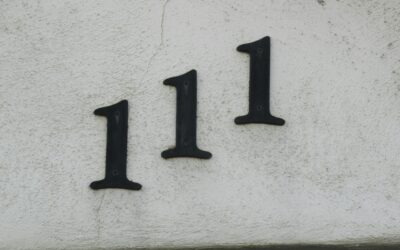If you ask different Christians where Jesus died, you will get several answers. Some will say Calvary, others Golgotha, and others may even say Gethsemane. Granted, all these venues are not too far from the truth. In the book of Hebrews, the Bible says that Jesus died outside the gates of the city (Hebrews 13:12 ). But where exactly was that?
Jesus did not die in the city – he died at a place outside the city. A careful study of the gospels will reveal that Jesus died outside the city in a place known as Golgotha (which is translated to mean the place of the skull).
Here are the scripture references from the four gospels that show that Jesus died at Golgotha.
| Reference | Scripture |
| Mathew 27:33 | They came to a place called Golgotha (which means “the place of the skull”) |
| Mark 15:21 | They brought Jesus to the place called Golgotha (which means “the place of the skull”). |
| Luke 23:33 | When they came to the place called the Skull, they crucified him there, along with the criminals—one on his right, the other on his left. |
| John 19:17 | Carrying his own cross, he went out to the place of the Skull (which in Aramaic is called Golgotha). |
According to Mathew’s account, Jesus was led to Golgotha. John defines Golgotha by saying it is the Aramaic name that means “the place of the skull.” There are several theories as to why it was referred to as the place of the skull including the fact that it was often used as a venue for crucifying criminals that had been sentenced to death. However, a more plausible explanation is the fact that one of the sides of the mountain was shaped like a skull. It is believed by some that the church of the Holy Sepulchre is thus named because it was built at the venue of Jesus’ crucifixion.
As we have established, Golgotha was an Aramaic name. The Greek version of the name was Kranion (“the skull”), from which we get the name Calvary. This is why some people refer to the place Jesus died as Golgotha while others refer to it as Calvary. According to Luke’s account, Jesus died at Kranion (the skull). It is also worth noting that as per Mark’s account, the centurion servants were leading Jesus to the place of a skull when they met Simon Cyrene. The fact that they randomly met a stranger on their way to Golgotha creates the impression that there was a public road that connected Golgotha to the city of Jerusalem. So to be specific, Jesus died outside the city of Jerusalem, on a hill called Golgotha, which was near a highway that led from the city.
It is no coincidence that Jesus died outside the city. It was divinely orchestrated because it was a symbol that Jesus wasn’t just dying for the Jews but even the Gentiles.
Therefore Jesus also, that He might sanctify the people through His own blood, suffered outside the gate. Hebrews 13:12.
The centurion servants and everyone else must have thought the only reason they were killing him outside the city was because that is what those guilty of blasphemy and the other sins they had accused him of deserved. Unbeknownst to them, he was an innocent man who was dying in their place and he was dying outside so that everyone would have a chance to come to him.
Is Gethsemane the Same as Golgotha?
We have already seen that Golgotha and Calvary are the same thing. But what about Gethsemane? Well, Gethsemane is not the same as Golgotha. Gethsemane is located at the base of Mount Olives and that is where Jesus went to pray after the Last Supper.
Then Jesus went with them to a place called Gethsemane, and he said to his disciples, “Sit here, while I go over there and pray. Mathew 27:33
The word Gethsemane is Hebrew for oil press. It was so named because it was the place where olives were processed to make oil. It was not a coincidence that Jesus picked this location for his final hours because this is where he was “pressed” emotionally to the point of sweating blood.
It was at Gethsemane that Jesus was betrayed by Judas and subsequently arrested. Following his arrest, Jesus was taken back into the city where he was tried and sentenced to death. After his sentencing, he was led to Golgotha, which is not the same place as Gethsemane.
Where is Golgotha?
The exact location of Golgotha is unknown. From the scripture, we know it is “outside Jerusalem.” While the location of the gates of Jerusalem is known, “outside the gates” could be any number of places. However, Bible scholars and archeologists have some theories that can give us a general idea of where Golgotha is in the present day. Experts have narrowed down the options to two possible contenders: Gordon’s Calvary and the Church of the Holy Sepulchre.
Gordon’s Calvary is believed to be Golgotha because it has a rocky formation that forms the shape of a skull. Archaeologists believe this rocky formation is what led to the name Golgotha. The church of the Holy Sepulchre is another serious contender because it is believed to have been erected on top of what used to be Golgotha. This huge church is built to embrace the walls of a hill that is referred to as Latin Calvary which is one of the reasons it is thought of as the venue of Christ;’s death. Furthermore, the church is located near the tomb where Jesus was laid by Joseph of Arimathea. This church is believed to have the very stone on which the body of Jesus was anointed with herbs and spices before burial.
Conclusion
In conclusion, Jesus died at a place called Golgotha, which translates to the place of the skull. Golgotha is an Aramaic name but its Greek version is Calvary. This means that Calvary and Golgotha refer to the same location. Even though the exact location of Golgotha is not known, it is not a deal breaker because our faith is based on the fact that he rose again from the dead.





